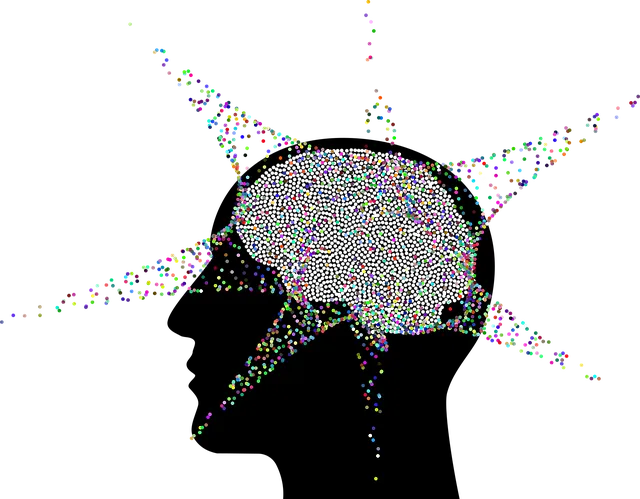The Highlands Ranch Kaiser Permanente mental health center offers comprehensive crisis intervention services, combining immediate support with long-term goals. They prioritize swift action through structured interventions and tailored strategies like Compassion Cultivation Practices and Social Skills Training. Short-term approaches focus on de-escalation and stress management, while long-term initiatives foster resilience, self-care, and community support networks. The center's holistic care model integrates community resources, partnerships, and innovative programs to enhance mental well-being and prevent future crises in Highlands Ranch.
In the fast-paced world we live in, crisis intervention strategies are vital for providing immediate and effective support at institutions like the Highlands Ranch Kaiser Permanente Mental Health Center. This article explores a comprehensive guide to navigating crises, focusing on the unique challenges faced by mental health professionals. From understanding the fundamentals of crisis intervention to assessing triggers, implementing short-term stabilization tactics, and fostering long-term resilience, we delve into strategies proven effective at the Highlands Ranch Kaiser Permanente mental health center.
- Understanding Crisis Intervention: A Foundation for Effective Support at Highlands Ranch Kaiser Permanente Mental Health Center
- Assessing the Situation: Identifying Signs and Triggers in Patients
- Short-Term Strategies: Immediate Steps to Stabilize and Support Individuals in Crisis
- Long-Term Solutions: Fostering Resilience and Preventing Recurrence
- The Role of Community Resources: Expanding Access to Care in Highlands Ranch
Understanding Crisis Intervention: A Foundation for Effective Support at Highlands Ranch Kaiser Permanente Mental Health Center

At Highlands Ranch Kaiser Permanente Mental Health Center, understanding crisis intervention forms the bedrock of our commitment to effective support. Crisis intervention is a structured and immediate response to individuals in distress, aiming to stabilize their situation and prevent further deterioration. Our approach integrates various strategies tailored to address not only the acute symptoms but also underlying vulnerabilities, ensuring comprehensive care for each unique individual.
Through a multi-faceted lens, we offer services like Trauma Support Services, Social Skills Training, and Community Outreach Program Implementation. These initiatives are designed to foster resilience, enhance coping mechanisms, and reconnect individuals with their support networks. By focusing on both the crisis at hand and long-term mental health goals, we strive to provide holistic care that empowers individuals to navigate future challenges with greater confidence and resilience.
Assessing the Situation: Identifying Signs and Triggers in Patients

At the Highlands Ranch Kaiser Permanente mental health center, crisis intervention begins with a meticulous assessment of the situation. Trained professionals look for subtle signs and triggers that indicate a patient is in distress. This can include changes in behavior, sudden shifts in mood, or overt expressions of despair. By closely observing these cues, they aim to provide timely support, ensuring the individual receives the necessary care before the crisis escalates.
Through effective assessment, the team at Kaiser Permanente can identify specific needs and tailor interventions accordingly. They employ various techniques like Compassion Cultivation Practices to foster empathy and understanding, Mental Illness Stigma Reduction Efforts to create a non-judgmental environment, and even Social Skills Training to enhance communication and coping mechanisms. These strategies collectively work towards stabilizing the patient’s condition and promoting long-term mental well-being.
Short-Term Strategies: Immediate Steps to Stabilize and Support Individuals in Crisis

In moments of crisis, swift action is paramount to ensuring individuals receive the immediate support they need. Short-term strategies employed by the Highlands Ranch Kaiser Permanente mental health center focus on stabilizing and supporting those in distress. This involves a combination of active listening, empathy, and practical assistance tailored to meet their unique needs. For instance, trained professionals facilitate crisis de-escalation techniques, helping individuals breathe and calm their minds. They also provide information about local resources, such as emergency hotlines or short-term housing options, enabling those in crisis to access immediate relief.
These initial steps not only alleviate acute symptoms but also empower individuals with basic tools for stress management. This proactive approach aligns with the broader goals of burnout prevention and fosters resilience. Moreover, it serves as a foundation upon which more intensive long-term interventions can be built. Additionally, public awareness campaigns developed by organizations like Highlands Ranch Kaiser Permanente play a crucial role in educating communities about recognizing and responding to crises effectively, thereby enhancing overall mental well-being.
Long-Term Solutions: Fostering Resilience and Preventing Recurrence

In the long term, fostering resilience and preventing recurrence are essential aspects of crisis intervention strategies at places like the Highlands Ranch Kaiser Permanente mental health center. These strategies go beyond immediate support to empower individuals and communities. Encouraging self-care routine development for better mental health becomes a cornerstone, equipping people with tools to navigate future challenges. By promoting inner strength development, individuals build coping mechanisms and adaptive skills, enabling them to withstand and overcome adversity.
Community outreach program implementation plays a vital role in this process. Engaging the community creates a support network that extends beyond individual interactions. This collaborative approach addresses systemic issues contributing to crises while fostering a sense of belonging and interconnectedness. Ultimately, these holistic strategies aim to break down barriers to mental well-being, ensuring individuals have access to resources and support systems that promote resilience and prevent future crises.
The Role of Community Resources: Expanding Access to Care in Highlands Ranch

In Highlands Ranch, access to mental health care has been significantly enhanced through the integration of community resources and collaborations with local organizations. The Highlands Ranch Kaiser Permanente mental health center stands as a cornerstone of this initiative, offering comprehensive services tailored to meet the unique needs of the community. By leveraging partnerships with non-profit agencies, schools, and faith-based groups, the center expands its reach beyond traditional healthcare settings. This collaborative approach ensures that support for mental wellness is readily available and accessible to all residents.
The Mental Wellness Podcast Series Production, a recent innovation, exemplifies this commitment to fostering mental health awareness. Designed to cater to diverse audiences, these podcasts explore various aspects of mental wellness, encouraging positive thinking and open discussions. Such initiatives not only supplement the services provided by the Kaiser Permanente center but also contribute to creating a supportive environment where individuals feel empowered to seek help when needed.
Crisis intervention at the Highlands Ranch Kaiser Permanente Mental Health Center involves a comprehensive approach, from immediate stabilization to long-term resilience building. By understanding crisis triggers, assessing situations swiftly, and utilizing both short-term strategies and community resources, the center provides effective support tailored to individual needs. This guidance ensures that patients receive holistic care, fostering recovery and preventing future crises in the vibrant community of Highlands Ranch.
